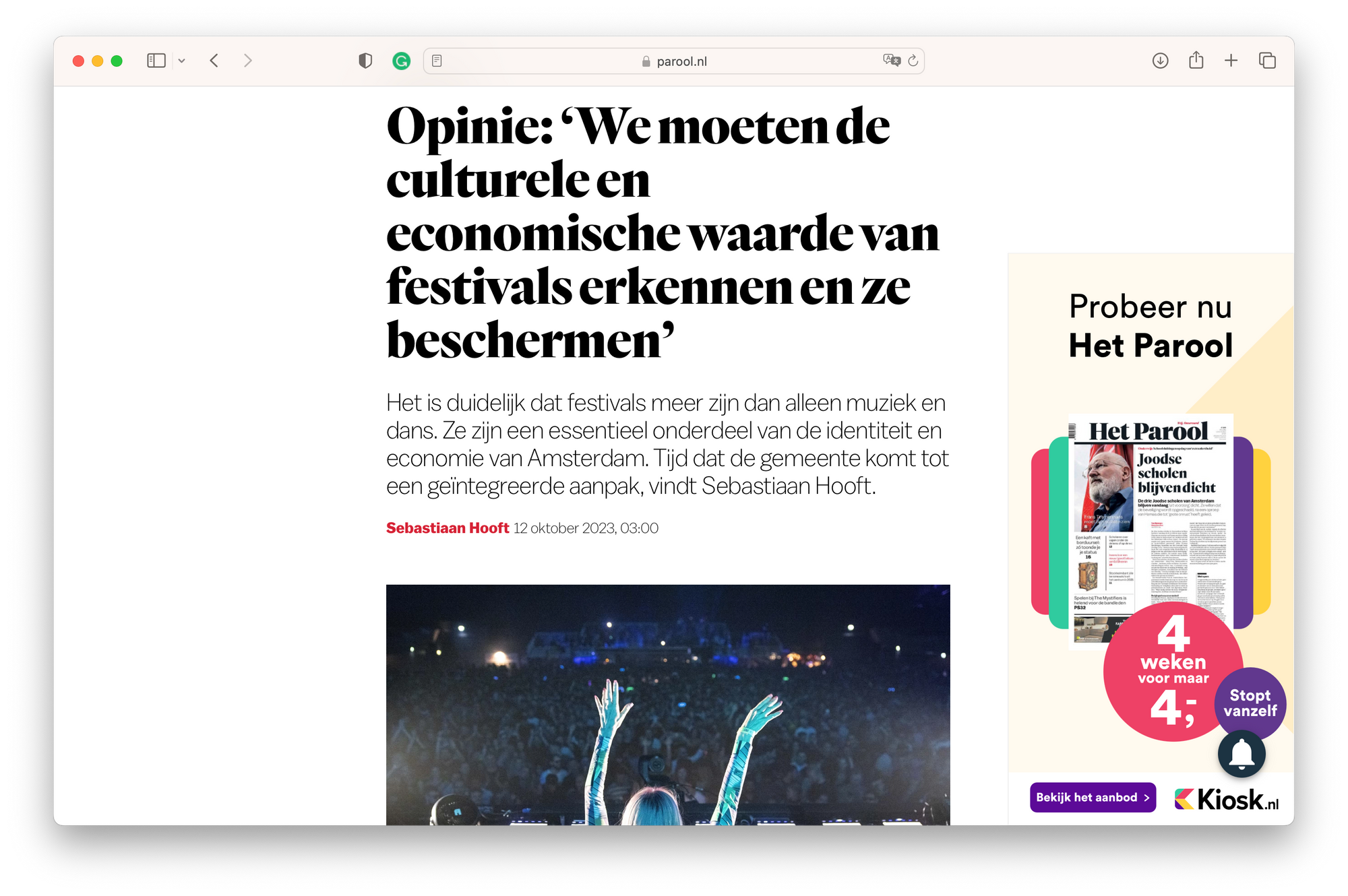In the media: protect the value of festivals

I'm excited to share my recent opinion published on October 12 in Het Parool, Amsterdam's premier newspaper. For those unfamiliar with Dutch, I've provided an English translation below.

October 12, 2023 - Festivals, like the upcoming Amsterdam Dance Event, attract thousands of visitors annually and generate millions of euros in revenue.
Festivals are more than just music and dance. They are a fundamental part of Amsterdam's identity and economy. It's time for the city to adopt an integrated approach.
What's the news?
The organizer of the Solid Grooves festival, where 21-year-old Jimmy Schepers was fatally stabbed on Pentecost day, admitted 2,500 more visitors than allowed. As a result, there were too few security personnel. This has strained relations between the city of Amsterdam and the events sector, just before the Amsterdam Dance Event.
The recent incident at the Solid Grooves festival has shocked the city and raised concerns about the future of festivals in Amsterdam. But as we mourn and reflect, we must also understand the broader context of these events and the undeniable value they bring to our city.
Worldwide growth
Let's start with the numbers. In 2021, the global EDM (electronic dance music) sector was worth 6.2 billion euros, up 71 percent from the previous year. While this is a worldwide figure, Amsterdam plays a central role in this industry. Our festivals, like the upcoming Amsterdam Dance Event (ADE), attract hundreds of thousands of visitors every year and generate millions in revenue. These events aren't just music and dance parties; they're vital to Amsterdam's economic engine.
However, it seems that the city of Amsterdam thinks in silos. One silo is culture, where festivals are celebrated as music and art celebrations. Another is the economy, emphasizing the financial benefits these events bring. This dichotomy is problematic. It suggests that culture and economy are separate entities while they are closely intertwined.
Tens of thousands of jobs
Consider employment. The festival industry in Amsterdam is responsible for tens of thousands of jobs, from stage builders to sound engineers and caterers to security personnel. These jobs aren't seasonal or temporary; they form the backbone of our city's economy. When a festival is canceled or limited, it directly affects many people's livelihoods.
Moreover, Amsterdam has built a global reputation as the center of dance culture. Our events, like ADE, are globally recognized and praised for their quality and innovation. These events attract visitors from all over the world, contributing to tourism and Amsterdam's global recognition. It's our most crucial cultural export from Amsterdam across the globe.
Safety issues
It's time for the city of Amsterdam to stop thinking in silos and adopt an integrated approach. We must recognize and protect the cultural and economic value of festivals. This doesn't mean we should ignore safety issues. On the contrary, we must aim for a balanced approach that recognizes both the cultural and economic value of festivals while ensuring the safety of the attendees.
Festivals are more than just music and dance. They are a fundamental part of Amsterdam's identity and economy. As we reflect on the recent incident, we must also understand the broader context and recognize the undeniable value festivals bring to our city. It's time for an integrated, holistic approach that protects Amsterdam's cultural and economic interests.

Member discussion